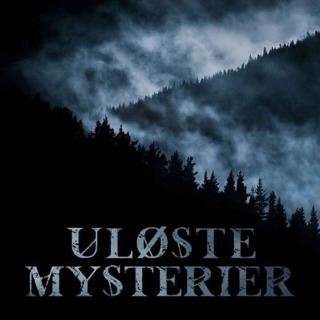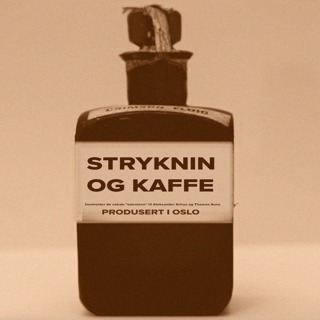
Muslim Spain
Melvyn Bragg and guests discuss Muslim Spain. In 711 a small army of North African Berbers invaded Spain and established an Iberian Islamic culture that would last for over 700 years. Despite periods of infighting and persecution, Muslim Spain was a land where Muslims, Jews and Christians co-existed in relative peace and harmony. Its capital, Cordoba, although not unique amongst Spanish cities, became the centre and focus for generations of revered and respected philosophers, physicians and scholars. By the 10th century Cordoba was one of the largest cities in the world. But what some historians refer to as Cordoba’s Golden Age came to an end in the 11th century, when the society was destabilised by new threats from Africa to the South and Christendom to the North. However, it was not until 1492, when Granada fell to the Catholic monarchs Ferdinand and Isabella, that Islamic Spain was well and truly over.In that same year the Jews were expelled from its shores and Christopher Columbus set sail to lead Spanish Christian expansionism into the new world. But how did Muslims, Jews and Christians interact in practice? Was this period of apparent tolerance underpinned by a respect for each other’s sacred texts? What led to the eventual collapse of Cordoba and Islamic Spain? And are we guilty of over-romanticising this so-called golden age of co-existence? With Tim Winter, a convert to Islam and lecturer in Islamic Studies at the Faculty of Divinity at Cambridge University; Martin Palmer, Anglican lay preacher and theologian and author of The Sacred History of Britain, Mehri Niknam, Executive Director of the Maimonides Foundation, a joint Jewish-Muslim Interfaith Foundation in London.
21 Nov 200228min

Victorian Realism
Melvyn Bragg and guests discuss Victorian realism. Henry James said “Realism is what in some shape or form we might encounter, whereas romanticism is something we will never encounter”. A reaction against Romanticism, the realist novel presented life as it was in urbanized, industrial Britain. Attacked as ordinary, mundane, overly democratic and lacking the imaginative demands of poetry, its defendants argued that the ordinariness of life contained a complexity and depth previously unseen and unconsidered. At its best the realist novel was like life itself - complex in appearance, rich in character, diverse in outlook, teeming with ideas and operating on several levels. It was a forum for the confusions of the Victorian age over Christianity and Darwinism, economics, morality and psychology, yet it was also a domestic novel concerned with the individuality of human relationships. From the provincialism of George Eliot’s Middlemarch to Hardy’s bleak and brutal Wessex, Victorian Realism touched all the great Victorian authors, but can it truly be the touchstone of an age which produced the fantasy of Alice in Wonderland, the escapism of Tthe Waterbabies and the abundant grotesquerie of Dickensian London? With Philip Davis, Reader in English Literature at the University of Liverpool and author of The Victorians, a volume of the New Oxford English Literary History; A.N. Wilson,novelist, biographer and author of The Victorians; Dinah Birch; Fellow and tutor in English at Trinity College, Oxford.
14 Nov 200228min

Human Nature
Melvyn Bragg and guests discuss the vexing issue of human nature. Some argue that we are born as blank slates and our natures are defined by upbringing, experience, culture and the ideas of our time. Others believe that human nature is innate and pre-destined, regardless of time and place. Is there really such a thing as human nature? And, if there is, can it be changed? Does the truth about human nature mean we should stop striving for progress, or should it give us cause for optimism? How important is the human race in the wider scheme of things? With Steven Pinker, Professor of Psychology and Director of the Centre of Cognitive Neuroscience, Massachusetts Institute of Technology; Janet Radcliffe Richards, Philosopher, Reader in Bioethics, University College London; John Gray, Professor of European Thought, London School of Economics.
7 Nov 200242min

Architecture and Power
Melvyn Bragg and guests discuss the role which architecture has played in our public life throughout history, whether in homage to an individual or as a monument to an institution or ideology, has always been a potent symbol of wealth, status and power. From castles to cathedrals, from the pyramids to Canary Wharf, architecture has always served to glorify in some way the animating ideal of the time. Why is architecture such a powerful form of expression? Have architects concerned themselves mainly with the masses, or restricted their designs to the demands and aspirations of the elite? What can a country's buildings tell us about its ideas of its own past and present identity? With Adrian Tinniswood, Architectural historian; Gavin Stamp, Senior Lecturer, Mackintosh School of Architecture, Glasgow School of Art; Gillian Darley, Architectural historian and biographer of John Soane.
31 Okt 200242min

The Scientist
Melvyn Bragg and guests discuss the origin of the concept and historical role of the scientist. The word "science" first appeared in the English language in 1340 and ever since its meaning has been in a state of flux. The notion of "the scientist" has had a similarly evolving history. For some, "the scientist" does not truly appear until after the Renaissance, others put its emergence much later than that. When did the words and concepts we recognise today take on their contemporary meaning? How has the role of the scientist, and our understanding of it, changed? Has science always been a rival to religion, or was it once an ally? And how has the scientist been perceived by the wider world – as a modern saint, the "priest of reason", or as a terrifying and amoral menace - the "mad scientist" of film and literature? With John Gribbin, Visiting Fellow in Astronomy, University of Sussex; Patricia Fara, Lecturer on the History and Philosophy of Science, Cambridge University; Hugh Pennington, Head of the Department of Medical Microbiology, University of Aberdeen.
24 Okt 200228min

Slavery and Empire
Melvyn Bragg and guests discuss slavery and empire; two themes that run right through this country’s history. Britain’s imperial project dominated at least the last three centuries of our national life. Its advocates claim it was a civilising mission by which Britain spread enlightenment and improvement across the globe. Opponents have long seen it as a brutal business, with Britons cast as cruel oppressors out to exploit a conquered world. Is our imperial history so clear cut? What if Britons were themselves captives, either as prisoners of an imperial enterprise that sucked them in, generation after generation or, in some startling cases, as slaves to foreign peoples? Is slavery an inevitable part of empire: does it come with the territory? And how did Britain finally shake it off? With Linda Colley, School Professor of History, LSE; Catherine Hall, Professor of Modern British Social and Cultural History, University College London; Felipe Fernandez Armesto, Professorial Research Fellow, Queen Mary College London.
17 Okt 200228min

Heritage
Melvyn Bragg and guests discuss the role history and heritage have played in the formation of the British national identity. Historians have often maintained a guarded relationship with the so-called ¨heritage industry¨, believing that it presents a distorted version of national life: a Merrie England that is politically acceptable and economically rewarding. History, in contrast, is held to reveal the truth about the past - objectively and scientifically. Our understanding of history changed since the 19th century and, as historians interpret our time and our society, so will our ideas of heritage and history.With David Cannadine, Director of the University of London's Institute of Historical Research; Miri Rubin, Professor of European History at Queen Mary, University of London; Peter Mandler, Fellow in History, Gonville and Caius College, Cambridge.
18 Jul 200241min

Psychoanalysis and Democracy
Melvyn Bragg and guests discuss the impact of politics on psychoanalysis. The 20th century saw the birth and rise of psychoanalysis. Sigmund Freud led people to think about how the mind functioned and how our behaviour might be understood through the process of working with a psychoanalyst, either one-to-one or in a group. Freud thought a lot about this process and in 1922 he published Group Psychology and the Analysis of the Ego, in which he pronounced that the group "wants to be ruled and oppressed and to fear its masters." He was writing at a time when ideas about rules and oppression were much discussed because the 20th century was also a century of fascism, totalitarianism and dictatorship. Freud died in 1939, just as a wave of despotism was sweeping across Europe. To what extent does psychoanalysis function by the rules of a dictatorship and to what extent does it function like a democracy? Is there a part of us that craves dictatorship and, if so, why? Is there a war going on in our own minds between ideas that we allow in to our consciousness and other ideas that we repress? With Adam Phillips, general editor of the new Penguin translations of Freud; Sally Alexander, Professor of History, Goldsmiths College, University of London; Malcolm Bowie, Marshal Foch Professor of French Literature and Fellow, All Souls College, Oxford.
11 Jul 200228min





















